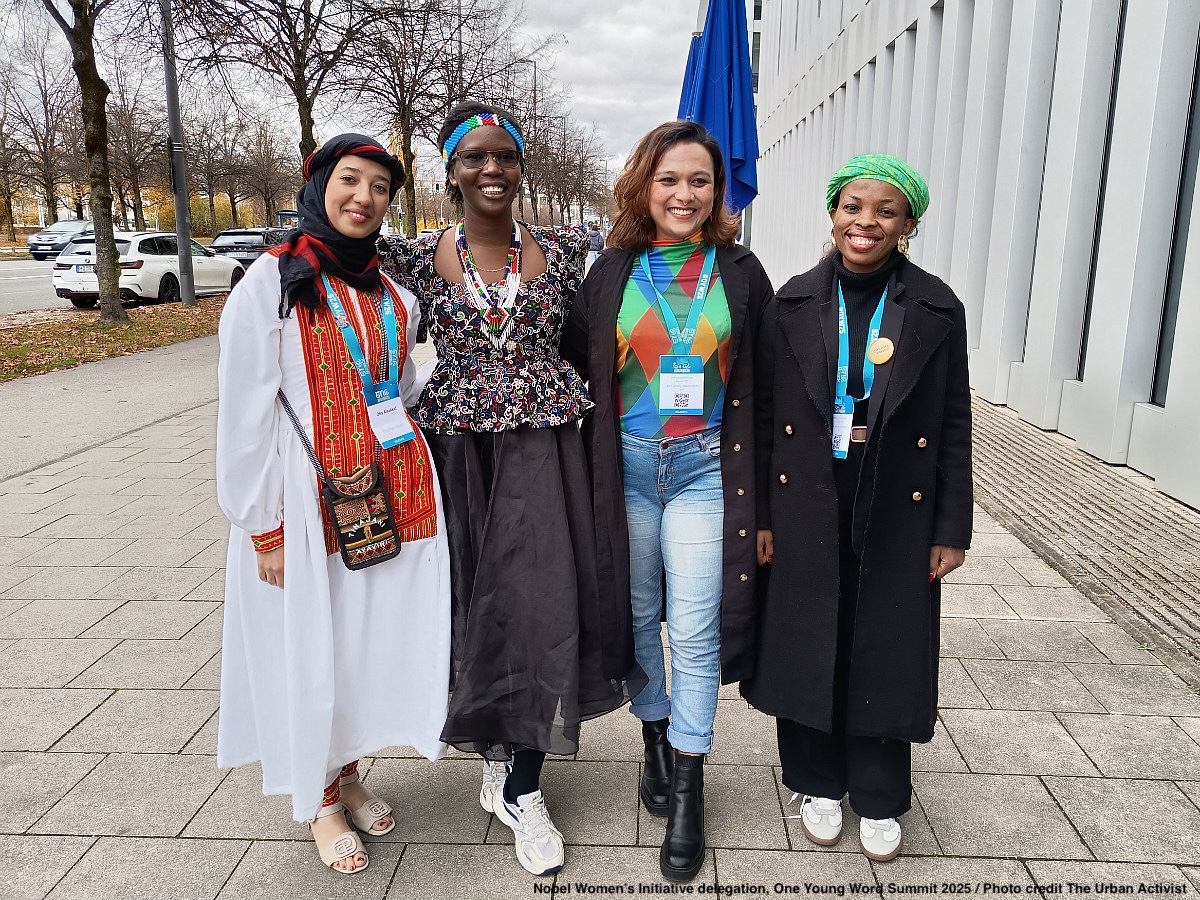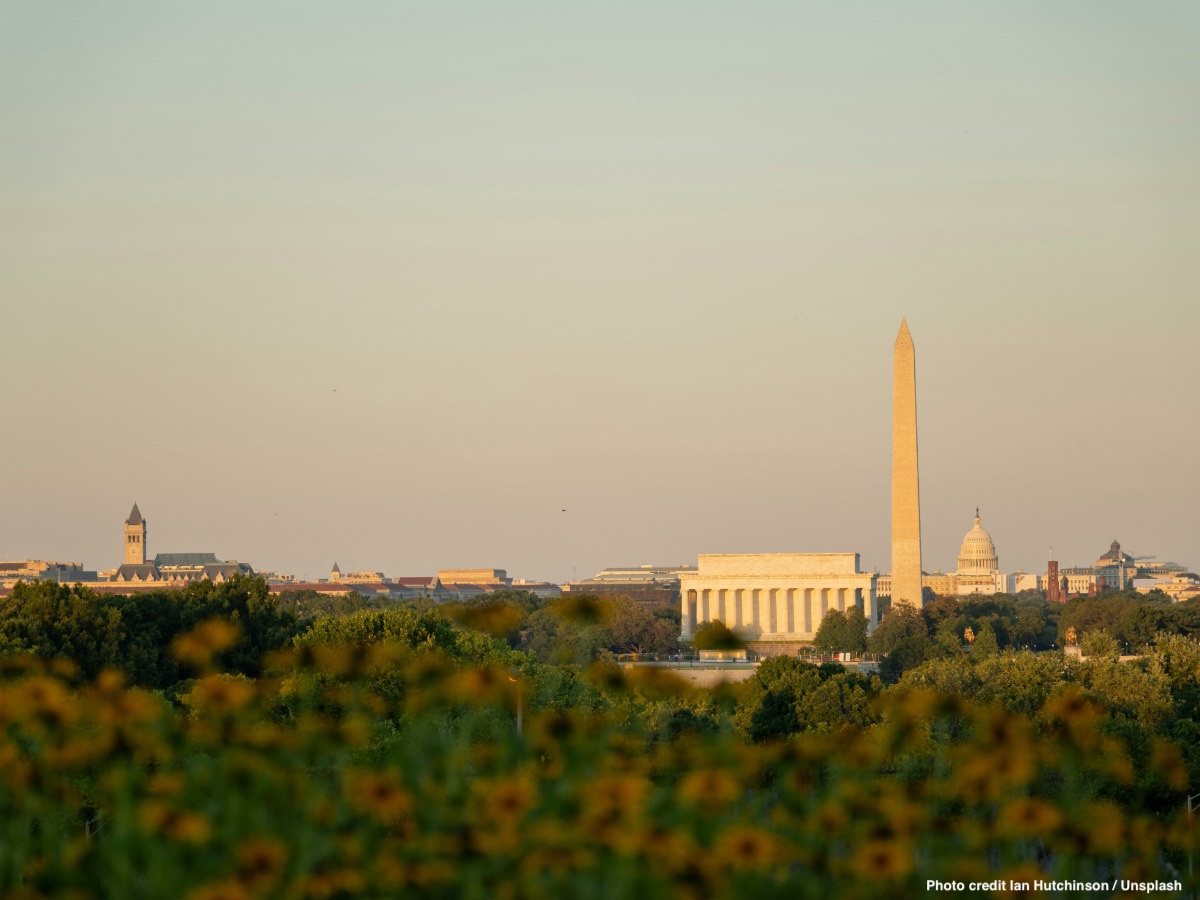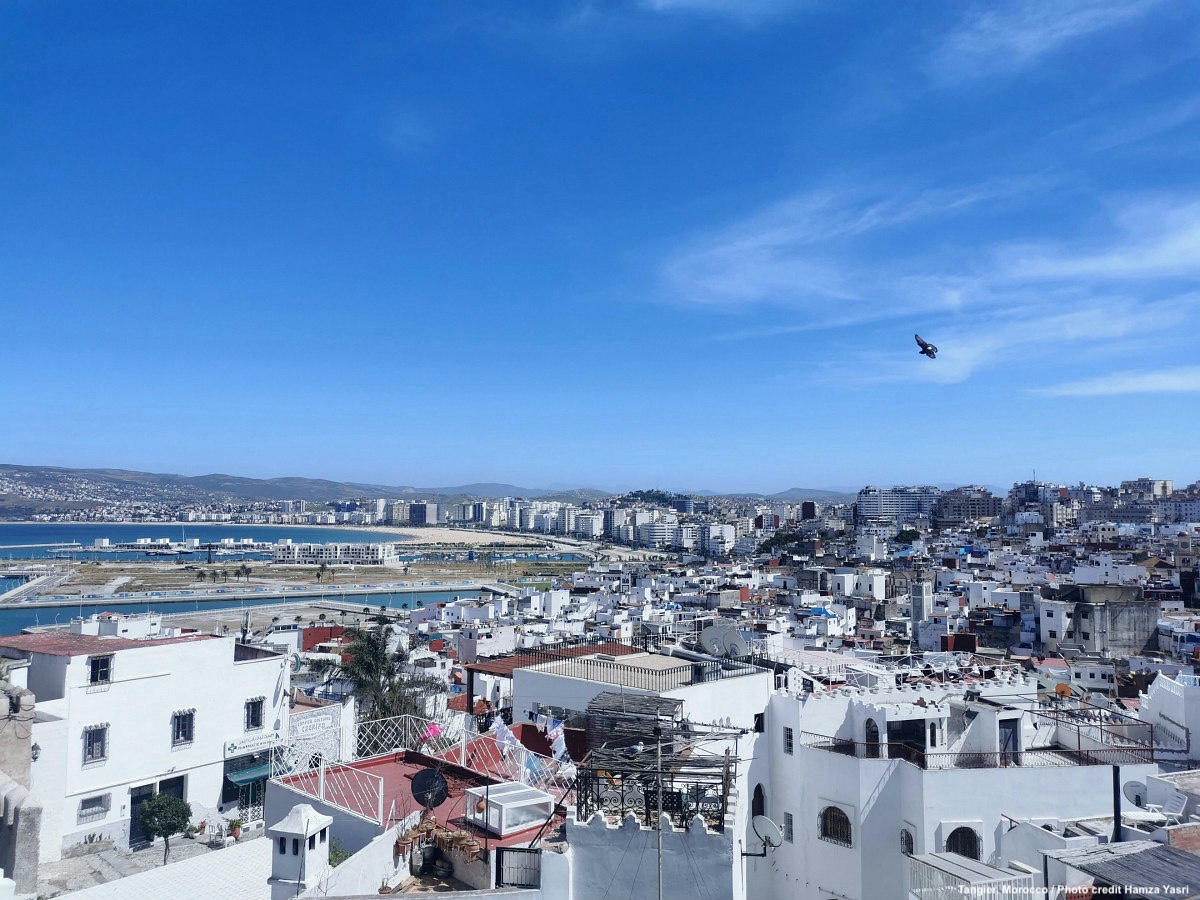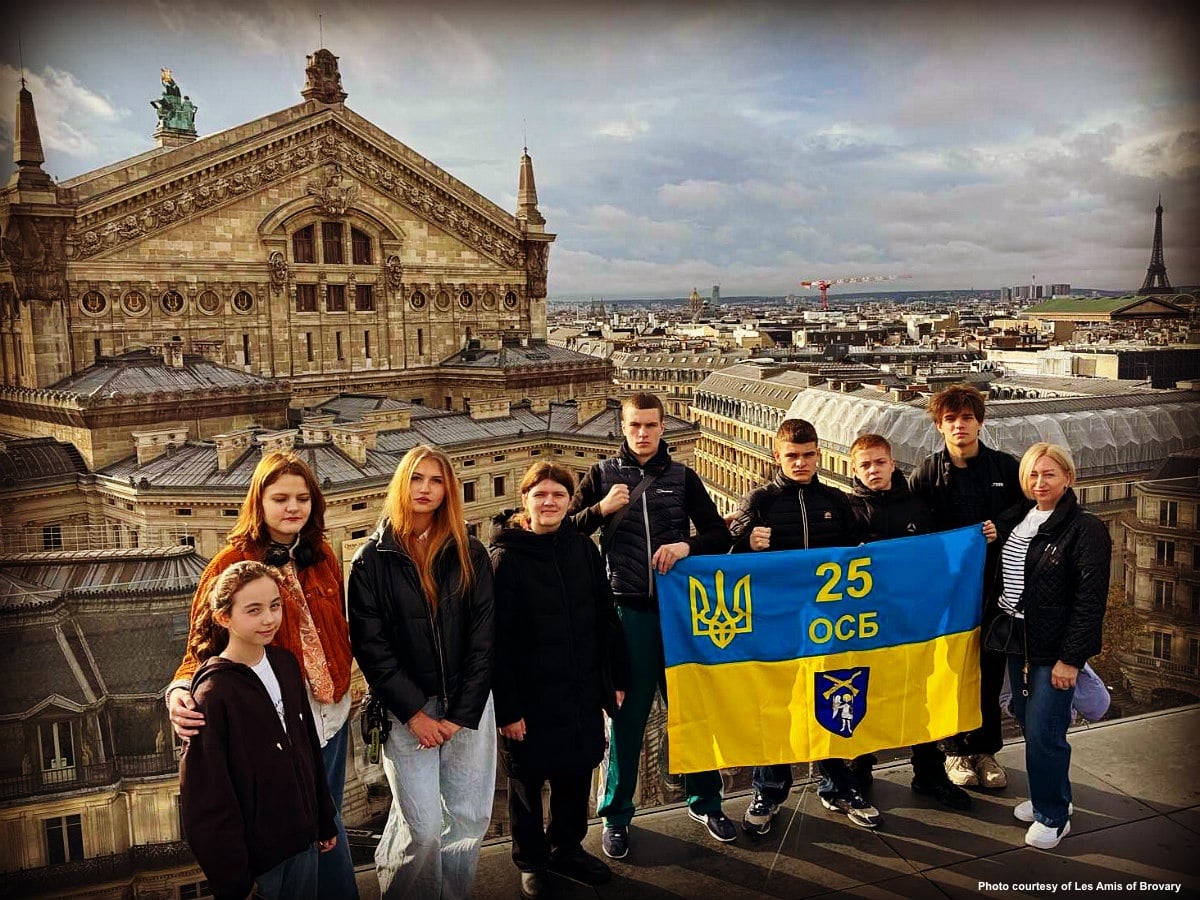This article was produced independently with support from the non-profit organization Nobel Women’s Initiative.
It was at the One Young World Summit in Munich last week, when a group of Generation Xers, counted on one hand in a big room filled with energy from Ys and millennials, still found a moment to be nostalgic. Musician and activist Sir Bob Geldof played a video of the massive concert Live Aid in 1985, which mobilized the pop world to raise funds for famine relief in Ethiopia.
With those funds, he sent several cargo ships through the Suez Canal en route to Ethiopia, saving many lives. The 80s were deeply disruptive and laid the foundations for our socially aware world. These weren’t just years of change happening to people — they were years of people causing change. The nostalgists may wonder, are today’s younger generations as disruptive? The recent Gen Z-led uprisings in Nepal and Morocco demonstrate a hunger for change, but Geldof cautions that “it has to be practical action to an end.”
After Geldof’s speech, Catherine Charles Modi Vitaliano from South Sudan, one of the young women peacebuilders attending the summit, noted: “It was great; it was raw and straightforward.” Rawness can be uncomfortable, even divisive. Yet friction, explained Modi Vitaliano, can be meaningful — as a check on honest conversation or coercion; as a spur to confront each other with the bitter truth; as a way for people in South Sudan to better understand their own flaws and fears.
According to Modi Vitaliano, it is essential to speak the truth to people in South Sudan and engage in conversations using the same tools, like WhatsApp and Facebook, that are often used to spread misinformation—even by those living in the diaspora. For instance, a cousin living in Australia can spark a local dispute in his family’s remote village in South Sudan. Some people argue that the government is to blame for something, while others point the finger at the rebels. “That is a whole ecosystem we need to acknowledge. That’s the nuance people sometimes overlook. The complexity is overwhelming.”
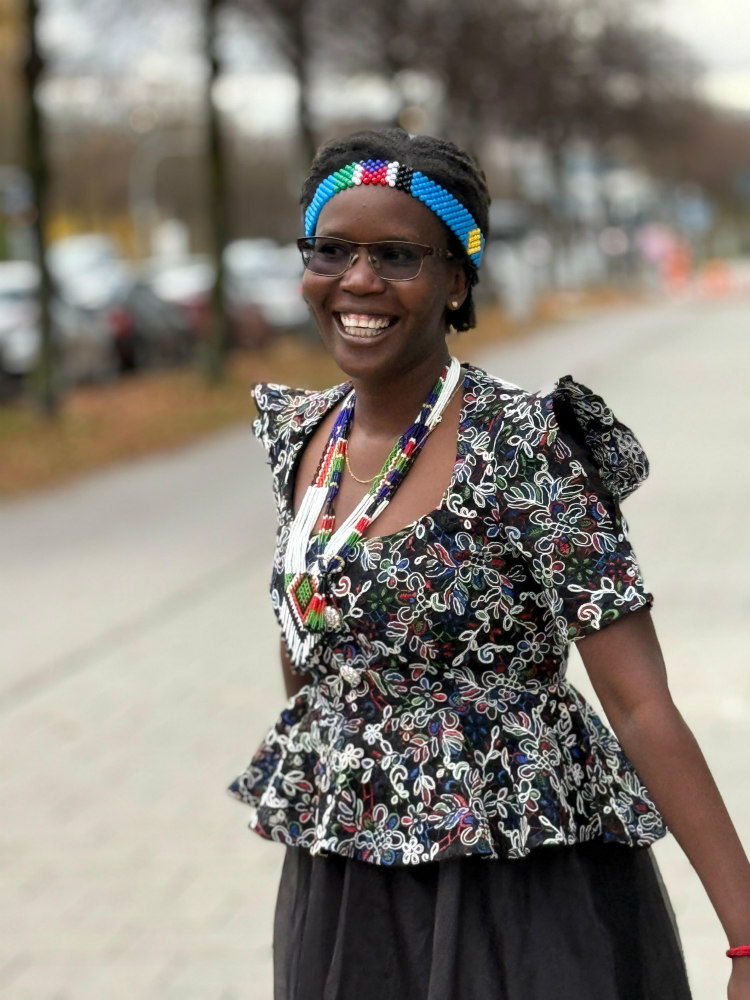
Modi Vitaliano is currently spearheading a Homegrown Peace Initiative that connects faith and community leaders, bishops, and university students through a WhatsApp group to mediate and combat misinformation in local conflicts. She monitors what members share and comment in the group, acting as a moderator and providing volunteers with a moral compass, while offering a perspective that supports the peace they have committed to upholding in their communities.
Recently, Modi Vitaliano found herself in a meeting at one of the embassies in Juba, the capital of South Sudan, defending, against all odds, her virtual safe space aimed at fostering peace. She challenged the dominant neoliberal peacebuilding approach that followed the 2018 peace agreement in South Sudan, stating, “We are not seeing the end of the conflict.” “I understand the system, but we should not let the system take control of us,” she lamented. Vitaliano is not a conformist; she praises open conversations grounded in empathy, rather than engaging in politically correct discussions that could impede progress.
After graduating from law school, she joined the public prosecutor’s office in Juba but quickly felt frustrated by the inaction she witnessed. Seeking a platform for her young voice, she became part of the South Sudan Women Peace Coalition peacebuilders. “I think for me, working in peace, women’s security and governance, it’s a personal calling. It’s a conviction.”
***
The same spirit runs through award-winning peace advocate Esther Atosha, founder of the nonprofit Women in Peace and Governance. In Bukavu, a city on the shores of Lake Kivu in eastern Democratic Republic of the Congo, this young activist runs a peacebuilding program that supports women survivors of gender-based violence in recovering and bouncing back from conflict by empowering them economically. The program supports income-generating activities and utilizes women’s experiences as evidence-based advocacy for the Women, Peace, and Security (WPS) & Youth, Peace, and Security (YPS) agenda, formally established by the UN Security Council.
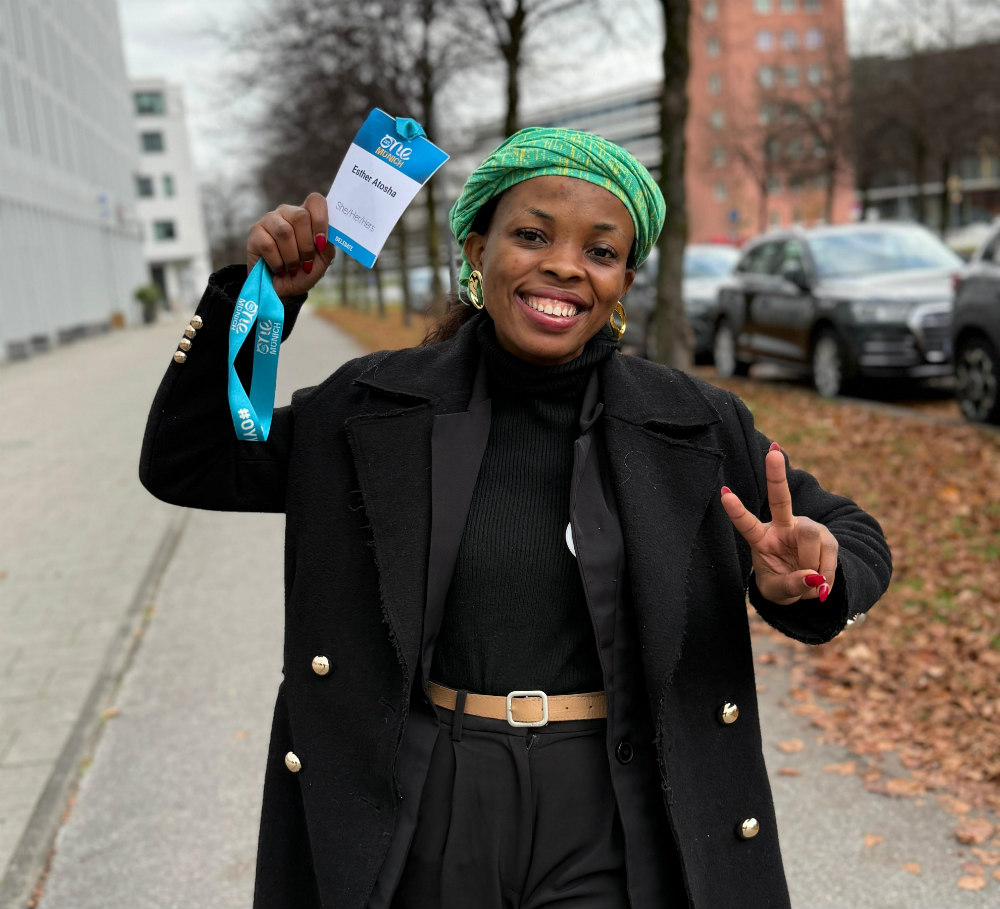
Her strategy to advance women’s rights in democracy involves door-to-door community outreach. Atosha and her team knock on doors to seek consent from women before engaging them in conversation. They work to build trust until the women are ready to participate in the program.
In a nation where democracy is fragile, she and her team have developed a strategy to navigate the political landscape by collaborating with the local government, rather than emerging as adversaries. Atosha explained that her presence at meetings helped break down stereotypes related to women and age. “When I showed up, they often said, ‘Oh, it’s you. You are causing so much trouble in the community,” she laughed.
In February 2025, the rebel group March 23 Movement and its allies seized control of Bakuvu, and the collaboration with the local government collapsed. Atosha was forced to flee through checkpoints in a highly dangerous area. Feeling threatened in her hometown, she continues to operate her local peace initiative from abroad.
***
Meeting young women peacebuilders in Munich felt almost miraculous. Individuals from conflict-ridden zones must apply for a visa outside their country, stay for approval, and then travel back to their home country. This bureaucratic challenge often hinders public awareness of their work. Fortunately, Atosha was able to attend the One Young World Summit. There, she participated in the panel “Centering Women in Peace and Security: From Asking to Action.” She was very explicit when she said that she stepped into some “fancy rooms, but then you go back home and nothing happens.” This young woman embodies the spirit of many peacebuilders that demand access to power—the power to reshape their narratives and restore the dignity of women in a failing system. “We want action beyond the walls of paper.”
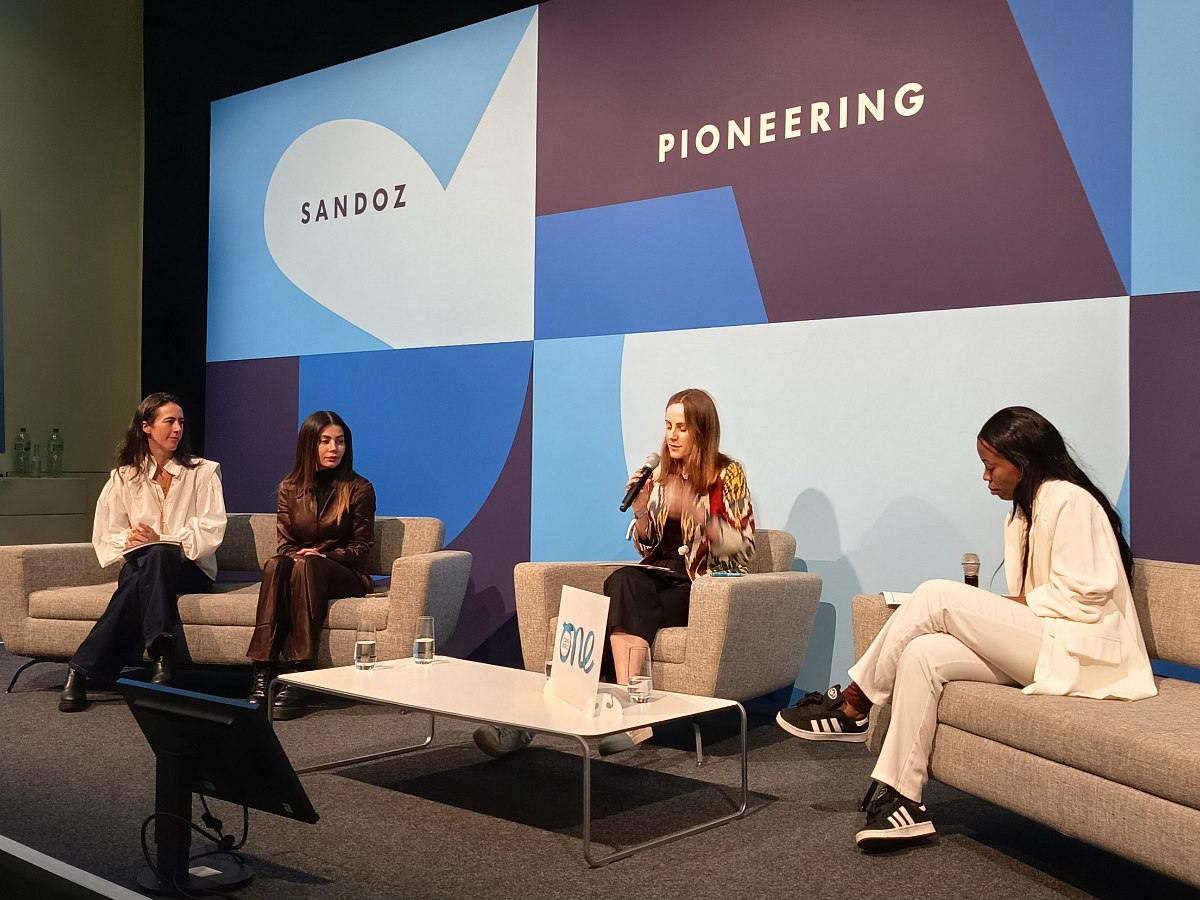
Twenty-five years ago, a determined coalition of women, peace activists, governments, and United Nations representatives introduced the Women, Peace, and Security Agenda (WPS) at the United Nations Security Council. However, as we mark its 25th anniversary, only 0,4% of the total UN budget goes to women, according to Stephanie Siddall, Director of Global Policy & Advocacy at Women for Women International. In an increasingly militarized world, she asserted that “we can’t pretend to build peace when we continue to fund war.”
Advocacy is not only underpaid, but the progress made by these young women peacebuilders is vulnerable. A survey conducted by Sophie Giscard d’Estaing, Deputy Head of the Women’s Peace & Humanitarian Fund, which collaborates with grassroots women’s organizations in 25 crisis- or conflict-affected countries, revealed that 69% of beneficiaries would have to close their doors within six months if funding were to cease.
Recommended Read: Women Without Weapons: “Rebels With A Cause”
Women from the Global South have played a crucial role in leading the Women, Peace, and Security (WPS) Agenda, according to Dildar Kaya, Advocacy Coordinator at the Nobel Women’s Initiative. However, she points out that there is currently no effective local implementation of this agenda. Kaya emphasizes the importance of resourcing young women peacebuilders, like Esther Atosha, to help them unlock new opportunities.
What Kaya described — what is now unfolding — is a new generation of young women, more actively on the ground, that can drive significant change. Giscard d’Estaing suggested that “vertical exchange should happen more between young and older organizations,” highlighting the necessity of preserving the civic engagement of these young women.
***
There is hope in the most challenging circumstances. Olla Alsakkaf’s life plans were drastically altered when the war broke out in Yemen in 2015. As an English literature student, she had to pause her studies and leave her hometown of Taiz, which was perilously close to the frontline of conflict. To protect their family home from looting, she stayed behind with her father. Initially, they believed the war would soon end. However, after six weeks of sleeping on the floor and avoiding windows and doors, they made the difficult decision to leave. Alsakkaf recalled a moment when her father handed her a gun, instructing her, “If anyone breaks the door and I’m not here, just shoot.” She held the gun, fully aware that she would never be able to use it.
Upon returning to Taiz, she joined Deep Root Consulting, where she documented the efforts of mediators working to exchange prisoners and recover bodies, and provided logistical support – cars and plastic bags for transportation. “They were doing a lot of work, but in a huge mess. I was the one who was documenting all that was agreed,” explained Alsakkaf.
Through her close interaction with local authorities, she gained profound insights into the war during mediation trips involving both the Houthis and the government. Reports detailing these efforts were typically sent to the office of the special envoy to Yemen. After working for over a year, Alsakkaf found the emotional toll overwhelming. She was constantly preoccupied with the lists of individuals affected by the conflict. Her phone was filled with pictures of prisoners and casualties. She met the affected families and felt their pain deeply, carrying their stories with her—the weight of numerous calls from families seeking assistance added to her psychological burden.
Eventually, Alsakkaf left to work for the National Democratic Institute, but the new American administration stopped the funding, forcing her to exit that role as well. She had already started a women-led nonprofit called Peace Environment for Development, which empowers young people to make their own decisions in pursuit of peace. “Our projects are designed to be either zero-budget or low-budget. Our main strategy relies on partnerships and the exchange of skills and knowledge,” she stated.
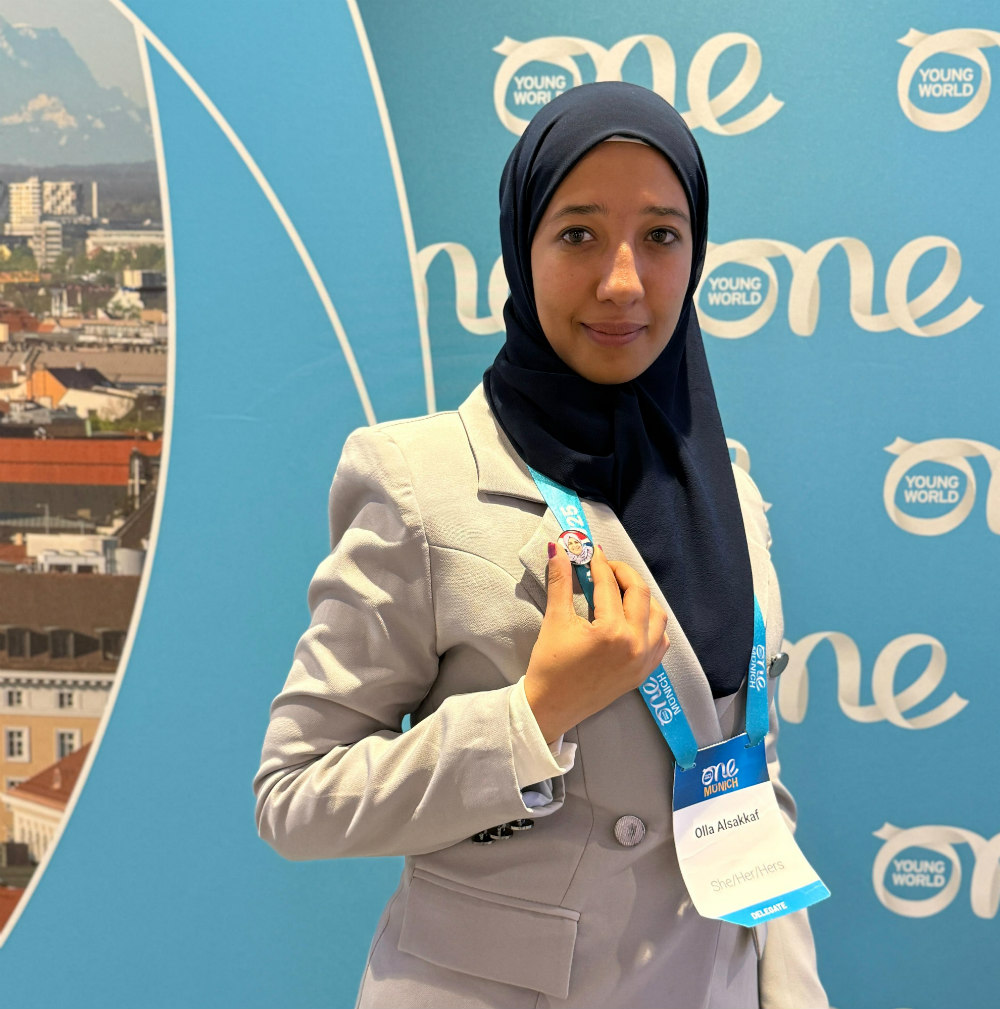
Her organization operates at the intersection of climate change in a country heavily impacted by deforestation and severe droughts, resulting in life-threatening water scarcity. They gather data, conduct research, and offer policy advice. Alsakkaf has authored policy papers on youth participation, gender equality, and climate resilience in conflict-affected contexts.
Recently, she organized a campaign to plant trees in Taiz, not only for climate action but also in memory of a friend who was assassinated while she was driving two months ago. Her friend Afthan Al-Mashhri, the manager of the stationery fund in Taiz, stood firm against pressures and threats for money, doing the right thing in the face of corruption. “I realize you can never be totally safe in a context like Yemen,” said Alsakkaf with a smile. Nonetheless, she continues to represent Yemeni civil society in regional and international forums, advocating for young women peacebuilders and their leadership in peace processes.
***
No matter the hardship, there is always a smile on the faces of these young women. Nandar, a feminist activist from Myanmar, explained to me that she always wears bright colours, which I noticed when I saw her vivid blouse. She now lives in a village where she feels safer after the military coup in 2021, which led to mass protests. The military responded with deadly force, arresting anyone suspected of criticising its rule. From there, she runs Purple Feminists, one of the leading young feminist organizations in the country. For anyone in Myanmar interested in learning about feminism, this is the go-to resource. Nandar tries to be as accessible as possible. “I don’t take pride in being scarce. I take pride in being accessible to the people,” she said. This sentiment is what motivated her to return to her country after spending over a year in exile in Thailand.
Previously, Nandar organized in-person training sessions, such as a writing and interdisciplinary workshop in Yangon, where she brought together 20 young people from diverse ethnic and religious backgrounds to connect through human rights. The importance of ethnic interrelation is well printed in her DNA; when she first menstruated, she was ostracized from the house and confined to a dark room according to Nepali tradition, missing an entire week of school. “Because of the diversity within the school, I got to know that this was not normal,” she reflected.
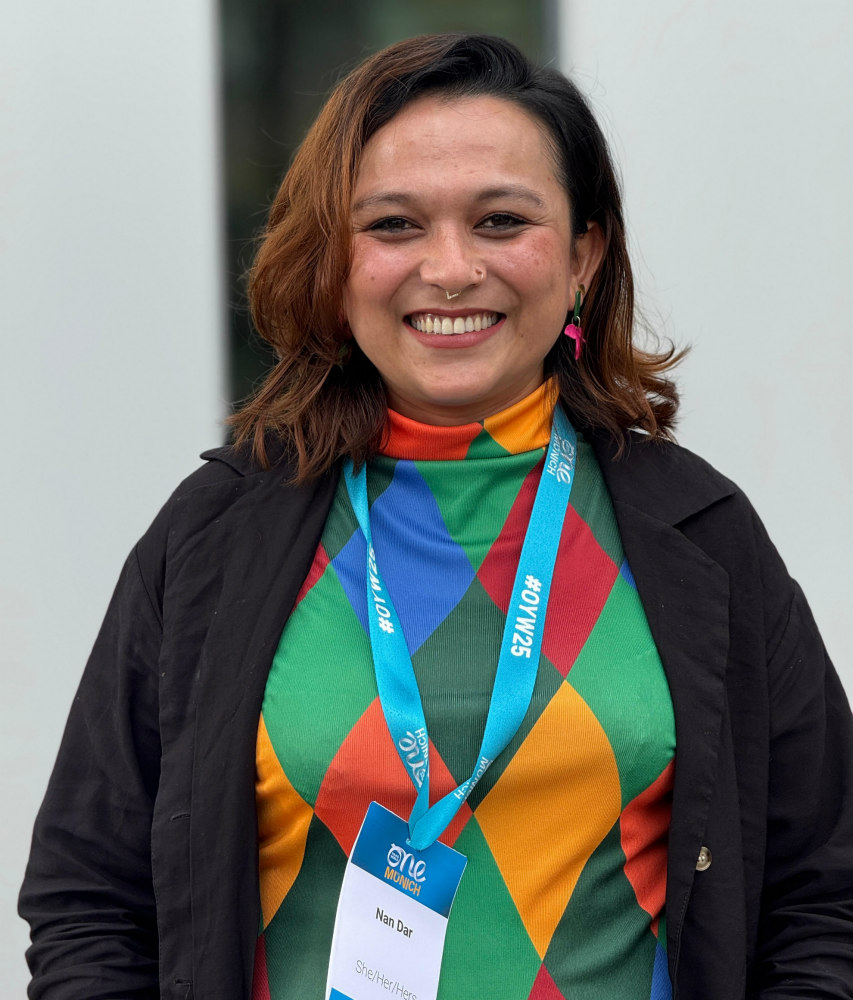
Currently, the mass strike by public sector workers in Myanmar, including teachers and students, known as the Civil Disobedience Movement, has prompted people to “find creative ways to get opportunities,” explained Nandar. The objective of this withdrawal of labor is to deny the junta any legitimacy or ability to govern, sending a strong signal that the people of Myanmar will not accept a military dictatorship. Therefore, young people who are out of school and out of university are craving for informal education within the country.
“That’s why a program on a digital format like ours on Feminist Leadership helped them to shape the path that they want to go.” Nandar hosts the podcast G-Taw Zagar Wyne and Feminist Talks with Nandar. She also writes and was the first person to translate works by Chimamanda Ngozi Adichie into Burmese, a cathartic experience that sparked her impactful contributions to feminist activism. In a country where the first democratically elected president after decades of conflict was a woman, it seems that feminism and the empowerment of women are a solid path to peace.
“We need to think of alternatives and we need to try,” says Catherine Charles Modi Vitaliano from South Sudan. “At least for me, we’re doing our part. If the question isn’t about amplification, it’s about who is ready to navigate the blurry journey and take a leap of faith.” From what I see, Gen Z is disruptive enough; it might be us, the Gen Xers, who have forgotten what ‘disruptive’ truly means, and we are the ones holding the funding.
